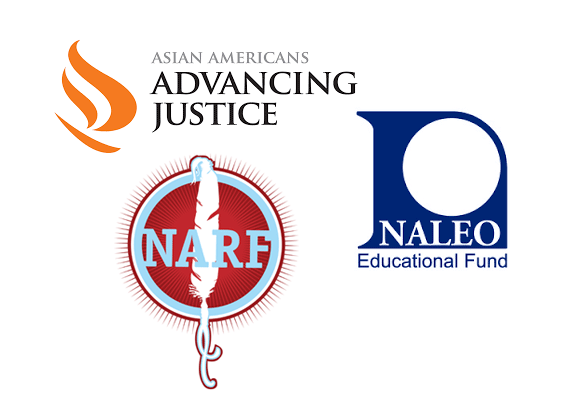On December 5, 2016, the Director of the U.S. Census Bureau issued a notice of determination identifying the jurisdictions subject to the language assistance provisions of Section 203 of the Voting Rights Act, which are available at 81 Federal Register 87532. The new Section 203 determinations, which are described in detail in the Voting Rights Act Coverage Update, replace the previous Section 203 determinations made in October 2011.
Key features of the new determinations include the following:
- The number of states covered in whole or in part by Section 203 has increased from 25 states to 29.
- All of the states previously covered in part continue to be covered, and four new states earned partial coverage since 2011: Georgia, Idaho, Iowa, and Oklahoma.
- Los Angeles County, California, continues to be the locale required to provide assistance in the most languages (6 languages): Spanish, Cambodian, Chinese, Filipino, Korean, and Vietnamese.
A number of states and political subdivisions identified in the Census determinations provide assistance in four covered language groups:
- Spanish language assistance must be provided statewide in California, Florida, and Texas, and a total of 214 political subdivisions in 26 states, an increase from the 212 political subdivisions covered in 23 states under the 2011 determinations;
- Alaska Native language assistance must be provided in 15 political subdivisions of Alaska, which is an increase of eight political subdivisions from 2011;
- American Indian language assistance must be provided in 35 political subdivisions in nine states, up from the 33 political subdivisions of five states covered in the 2011 determinations;
- Asian language assistance must be provided in 27 political subdivisions in 12 states, up from the 22 political subdivisions of 11 states covered in the 2011 determinations.
When a jurisdiction is covered by Section 203, generally all “voting materials” it provides in English should be translated in the language of all groups or sub-groups covered by the determination. Voting materials include voter registration materials, voting information provided by mail, publicity about the language assistance, ballots, and oral assistance at polling locations. The language assistance provisions apply to all stages of the electoral process for “any type of election, whether it is a primary, general or special election.”
“Asian Americans Advancing Justice | AAJC (Advancing Justice | AAJC) is pleased to see that the new set of Section 203 determinations has increased coverage to 27 jurisdictions for language assistance in at least one Asian language,” said Mee Moua, president and executive director of Advancing Justice | AAJC. “As the fastest growing group in the country, the coverage means increased access and participation by our communities. We look forward to working with elections officials in these jurisdictions to assist with proper implementation and their efforts to comply with Section 203.”
“The Latino population continues to grow and diversify across all fifty states, making the increase in the number of political subdivisions required to provide Spanish assistance in elections a critical tool in protecting the right to vote for millions of Latinos,” said Arturo Vargas, NALEO Educational Fund Executive Director. “While these coverage determinations will help ensure that future elections are accessible to the nation’s Latino electorate, we remain deeply concerned by Congress’ persistent failure to fully fund the Census Bureau. It is time for Congress to finally act to provide the Bureau with the resources it needs to ensure a full and accurate count of the nation’s second largest population group in Census 2020.”
“The Native American Rights Fund is encouraged that the new Section 203 determinations have restored coverage for Alaska Native languages in much of Alaska and include regions where our Native clients have enforced their right to equal access to voting in their own languages,” said NARF Staff Attorney Natalie Landreth. “The restoration of coverage for American Indian languages in California, Colorado, and Iowa also is encouraging,” Landreth added. “However, the loss of coverage of so many southwestern American Indian languages is concerning. NARF looks forward to working with tribal governments and the Census Bureau to determine if continued coverage was impaired by any sampling methods or undercounts,” Landreth concluded.
See the joint press release from AAJC, NALEO, and NARF.
See the December 2016 Voting Rights Act coverage update.
 * For the past year, the Native American Rights Fund and Asian Americans Advancing Justice have been cohorts in the Open Society Foundation/Proteaus Fund’s initiatives, Solidarity Summit, and the SolidarityIs Campaign. The initiative and campaign’s focus is to bring various communities of color, national origin, and beliefs together to focus on our similarities as peoples, learn about each other to break down stereotypes, and to support each other on various issues which effect all our communities.
* For the past year, the Native American Rights Fund and Asian Americans Advancing Justice have been cohorts in the Open Society Foundation/Proteaus Fund’s initiatives, Solidarity Summit, and the SolidarityIs Campaign. The initiative and campaign’s focus is to bring various communities of color, national origin, and beliefs together to focus on our similarities as peoples, learn about each other to break down stereotypes, and to support each other on various issues which effect all our communities.


